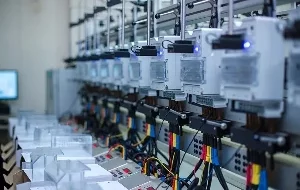The Electricity Company of Ghana (ECG) has clarified reports suggesting it is seeking a 220% increase in electricity tariffs, insisting that its proposal to the Public Utilities Regulatory Commission (PURC) relates only to distribution service charges and not the overall end-user tariff.
Appearing before Parliament’s Committee on Energy, Acting Managing Director Julius Kwame Kpekpena stressed that the request had been misinterpreted in the public space.
He explained that the adjustment was intended to correct distortions in the current tariff structure and strengthen ECG’s ability to maintain and expand its distribution network.
“So let me repeat this clearly: ECG is not asking that customers’ tariffs be increased by 220%. Absolutely not,” Kpekpena told the committee.
“What we are asking for is an adjustment to the distribution service charge, which currently stands at only 12% of the end-user tariff when it should be closer to 40%. This distortion must be corrected, but it does not mean consumers will see a 220% jump in their bills.”
He added that any changes approved by PURC would be cushioned to protect consumers.
“The distribution service charge can go up without necessarily increasing the end-user tariff by the same margin. That is why we have engaged PURC to carefully assess the proposal,” he said.
Kpekpena also addressed revenue leakages, noting that illegal meters remain a major challenge. “It is important for us to remove illegal meters and replace them with legal meters issued by ECG. Otherwise, our losses will continue to grow,” he cautioned.
The clarification comes as ECG rolls out reforms to improve its operations and finances. In July 2025, the utility recorded its highest-ever monthly revenue of GH¢1.74 billion, which Kpekpena described as a sign that “the reforms are beginning to pay off.”
Public concern followed earlier reports that consumers could face a 220% tariff hike.
Civil society groups, including the Africa Sustainable Energy Centre (ASEC), condemned the proposal as “outrageous and unjustified,” insisting that inefficiencies within ECG should not be passed onto consumers.
Source: ghanaweb.com




